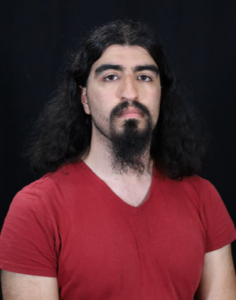ECE Research Seminar – Friday, September 27 12-1 pm
September 20, 2024
Please join us for our September 2024 ECE Research Seminar
Friday, September 27 12:00 – 1:00 pm, Simrall 104 and WebEx
https://msstate.webex.com/msstate/j.php?MTID=m25f833982610d8ef3781ef0e41de460d
Model-Aware Measurement Pattern Design for Underdetermined and
Constrained Problems with Compressive Sensing and Deep Learning
Cemre Ömer Ayna | ca1389@msstate.edu
Abstract: In the last two decades, the use of compressive sensing (CS) theory in signal processing has increased due to its ability to provide a robust and effective basis for sparse signal sampling and reconstruction. While CS-based inverse problems were initially solved via conventional iterative 1 -norm convex optimization algorithms, many modern approaches have opted for deep learning (DL), with most recent ones incorporating measurement design into their overall learning schemes. However, DL models for CS-based problems and their learned measurement patterns suffer from several issues, such as high sensitivity to noise and other variations in samples, a high dependence on the measurement pattern emerging during training, and a lack of consideration for constraints in the learned measurement patterns. This study aims to develop and apply a machine learning framework for measurement pattern learning across a wide range of problems involving constraints and considerations. The proposed framework is a unified architecture with a dedicated measurement pattern learning module at the head and a task-specific neural network module at the tail. This framework is built on ideas from model-aware machine learning and measurement pattern learning studies, combined into a single network that is trained for two separate problems simultaneously. This study presents the application of this framework in two distinct projects involving measurement pattern learning with constraints. The first project focuses on hyperspectral band selection for satellite hyperspectral images, while the second project involves learning a physically applicable color filter array for modern commercial cameras. The analysis of both studies shows that the framework finds the optimal solution for each problem, surpassing available alternatives and returning a measurement pattern that adheres to the problem’s constraints.
 Mr. Cemre Ömer Ayna received his B.S. in Electrical & Electronics Engineering from KoçUniversity in Turkey in December 2021. He is currently pursuing a Ph.D. in Electrical & Computer Engineering at Mississippi State University and has been working as a research assistant at IMPRESS Lab since August 2021. He is an IEEE student member and a worker under NSF CAREER project of Dr. Ali Gurbuz. He has participated in various research presentations and showcases, and received the 1st place at the Graduate Research Symposium at MSU in 2024. He has attended various conferences as a presenter, including Asilomar 2022, SPIE 2024, and Asilomar 2024. His main research area is measurement design and signal compression and reconstruction through model-aware machine learning and compressive sensing techniques.
Mr. Cemre Ömer Ayna received his B.S. in Electrical & Electronics Engineering from KoçUniversity in Turkey in December 2021. He is currently pursuing a Ph.D. in Electrical & Computer Engineering at Mississippi State University and has been working as a research assistant at IMPRESS Lab since August 2021. He is an IEEE student member and a worker under NSF CAREER project of Dr. Ali Gurbuz. He has participated in various research presentations and showcases, and received the 1st place at the Graduate Research Symposium at MSU in 2024. He has attended various conferences as a presenter, including Asilomar 2022, SPIE 2024, and Asilomar 2024. His main research area is measurement design and signal compression and reconstruction through model-aware machine learning and compressive sensing techniques.
* For further information contact: Dr. Jenny Du | du@ece.msstate.edu | 5-2035For WebEx acce ss, scan the QR code
ss, scan the QR code
The Department of Electrical and Computer Engineering at Mississippi State University consists of 27 faculty members (including seven endowed professors), seven professional staff, and over 700 undergraduate and graduate students, with approximately 100 being at the Ph.D. level. With a research expenditure of over $14.24 million, the department houses the largest High Voltage Laboratory among North American universities.
